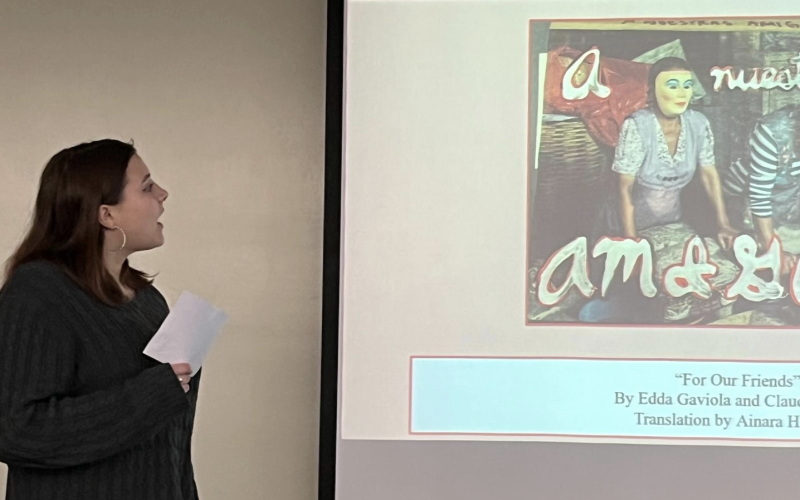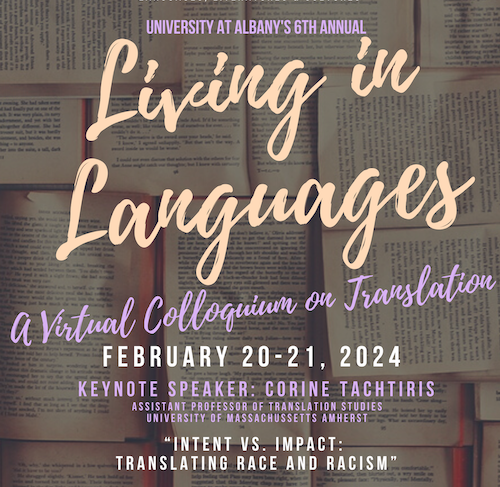Living in Languages Colloquium to Explore Themes of Translation

By Bethany Bump
ALBANY, N.Y. (Feb. 20, 2024) — The Departments of English and Languages, Literatures and Cultures (LLC) at UAlbany will host their 6th annual Living in Languages Colloquium today and Wednesday, exploring themes related to language and translation.
The event, which will be in a virtual format via Zoom this year, is free and open to the public. Doctoral students from both departments, as well as visiting scholars from other universities and countries, will present papers in panels moderated by UAlbany faculty.
Panels will focus on issues of translation broadly understood, according to organizers Helen Elam, associate professor of English, and Ilka Kressner, associate professor of Spanish and chair of the LLC department.
Participants will address questions of reading and ideology, and explore how translation can be understood as exile, geographical and linguistic displacement, violence, assimilation and more.
“The topic – translation – is broad,” Elam said. “It covers literature, technology, cultural and postcolonial studies. One of its aims, and the way I see translation, is that translation does not mean transferring ideas from one language to another, but understanding that translation is already occurring in the original, in the ‘native’ language. This may sound esoteric, limited to literature and philosophy, but it has considerable implications across the board: how to understand the ‘alien,’ the ‘border,’ and so on.”
Corine Tachtiris, assistant professor of translation studies at the University of Massachusetts Amherst and author of Translation and Race (2024), will deliver a keynote address at noon today titled “Intent vs. Impact: Translating Race and Racism.” Tachtiris is a translation scholar who uses the lens of critical race studies to inform an ethical practice of translating radicalized language, and the lens of translation studies to destabilize the construction of race through language.
Given the breadth of the topic, presentations at the colloquium will range from Old English to emojis, from language and religion to the rhetoric of loss, from close reading of a text to the conflict of languages in a time of war.
Many of the ideas explored at the colloquium are also discussed in the Living in Languages Journal — an online, open access, peer-reviewed publication devoted to translation studies and generated by graduate students and recent graduates of the English and LLC departments. The third edition is underway now and will be released later this spring, featuring work from colloquium participants.
The colloquium is organized by faculty and a group of about 11 graduate students.
Register here to receive a Zoom link. See the full Living in Languages Colloquium program agenda here.





